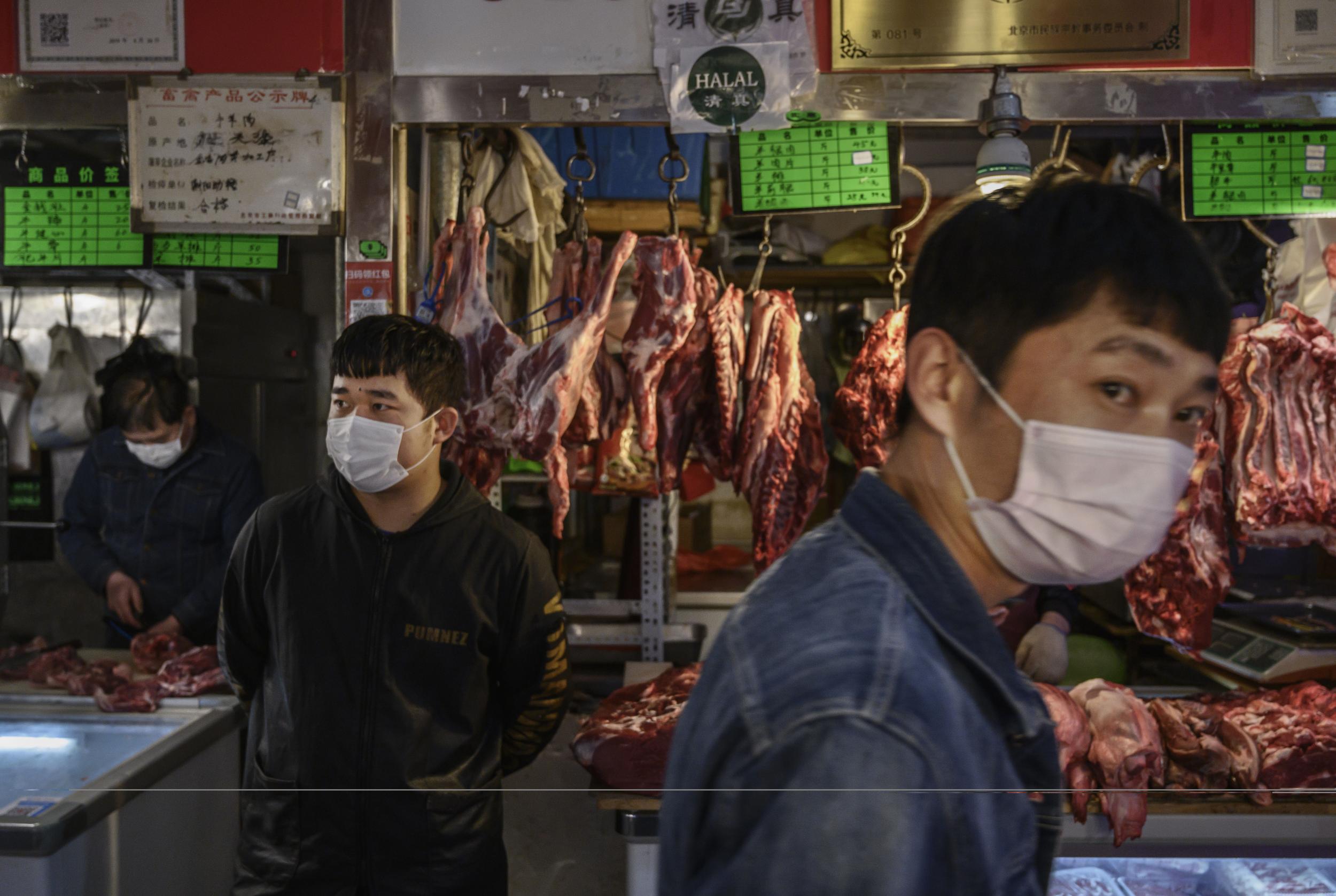‘Life will always find a way’: China tries to shut down wildlife trade but markets remain open
Stop the Wildlife Trade: In February, China passed a law to outlaw all wildlife trade and consumption, but despite the government’s efforts to weed out the possible source of the coronavirus outbreak, markets remain open across the country
Cordoned off by blue barricades and police lines, the once-bustling Huanan Seafood Market has suspended operation since 1 January, after dozens of customers fell ill to what we now know as the deadly Covid-19 virus. The sign that adorned the entrance of the market, a landmark of Wuhan city, has also been removed.
As residents prepare for a return to work this week, business owners at the market will have nowhere to go. “Since all businesses need to apply for permission from the government before they restart operation, it will be impossible for these businesses to gain the government’s approval,” said Michael, who used to own a fruit stand a few blocks away from the Huanan Seafood Market and refused to give his real name.
Wildlife trade was once a lucrative and thriving industry in China, but the suspicion that the current coronavirus pandemic started in exotic animals smuggled into the country has forced the government to crack down on the decades-old trade.
Last month, Beijing rolled out a strict ban on the breeding and consumption of wild animals, as it tried to prevent another outbreak from happening. This was a general guidance issued from the central government, with the power to enforce the law ultimately lying with provincial or municipal officials.
Several other provinces have followed suit, and the southern industrial hub Shenzhen announced a ban on the sale and consumption of dog and cat meat on Thursday, becoming the first Chinese city to do so.
In Wuhan, local officials have been increasingly strict in their crackdown on businesses engaged in wildlife trade or breeding. On 3 March, local authorities in Wuhan carried out a comprehensive disinfection campaign across the entire Huanan Seafood Market.
A decades-long tradition
However, recent reports suggest that despite the regional governments' efforts to put an end to wildlife trade, illicit commercial activities are still happening at public markets in certain parts of China. Earlier this week, the Mail on Sunday reported that thousands of customers flooded an indoor market in the southwestern city of Guilin in China, as living dogs and cats were crammed into cages while dead bats and scorpions were on display.

Andrew Huang, a Chinese culinary expert, says one of the reasons why it’s hard for the Chinese government to completely end the consumption and trading of wildlife in China is because such behaviours have become part of decades-olds tradition in the country.
“Different parts of China have their specific traditions of consuming wildlife for different purposes,” Mr Huang explains. “In the northeastern part of China, bears and deers are a big part of the local delicacies while in southwestern China, bats and pangolins are often used in traditional Chinese medicine. The steady demand for such wildlife has nurtured a lucrative supply chain, including some businesses that focus on breeding specific types of wild animals.”
Mr Huang thinks that the current crackdown on wildlife trade and consumption might temporarily prevent relevant practices from happening in public markets, but it will be hard to completely eliminate it from the Chinese culture.
“In the short term, even if wildlife sellers can’t keep selling these animals in public, they will try to find other ways to keep the businesses alive,” Mr Huang tells The Independent. “As the old saying goes, life will always find a way. Even if the government has banned wildlife trade and consumption, the tradition won’t be so easily wiped out.”
‘No need to close the entire market’
In Wuhan, while the plan to shut down the Huanan Seafood Market is underway, local residents have different opinions about how to handle the market where the coronavirus pandemic began.

“Honestly, wildlife trade isn’t the main commercial activity at the Hunan Seafood Market, as most of the sellers still focus on selling different kinds of seafood,” says Ms Xu, who was a frequent shopper at the market until it was shut down.
Since the market is right next to one of the major train stations in the city, she says, it has become the regional hub for selling fruits and seafood, as well as wildlife. Due to the large number of visitors coming from different parts of Hubei province, it also became the ideal breeding ground for the coronavirus.
“I think even if the government wants to ban wildlife trade, they don’t have to shut down the entire seafood market,” Ms Xu says. “This will have a huge impact on local restaurants and businesses that have long relied on the market for their seafood supplies.”
Ms Xu says that instead of forcing dozens of business owners to lose their livelihoods, the Chinese government should focus more on tackling the ongoing pandemic itself. “I wish the government could conduct more coronavirus tests on citizens, because I suspect many of them could still be asymptomatic patients or patients with mild symptoms,” she said.
Join our commenting forum
Join thought-provoking conversations, follow other Independent readers and see their replies
Comments
Bookmark popover
Removed from bookmarks